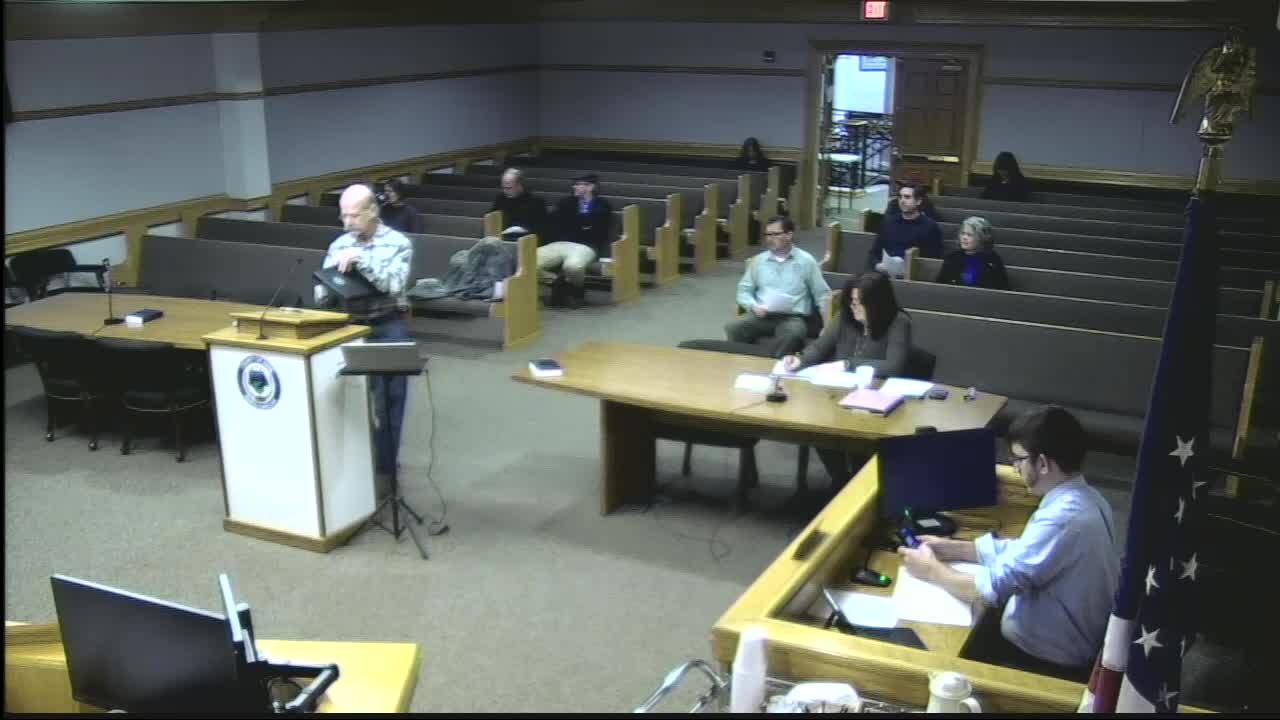Ashe County officials report ongoing hurricane recovery needs, ask state to restore NCWorks funding for case management
Get AI-powered insights, summaries, and transcripts
Subscribe
Summary
County leaders and the Department of Social Services updated the Board of Commissioners Feb. 17 on housing losses, open disaster cases, donated temporary housing and state energy-assistance funds; DSS asked the board to press the state to restore NCWorks grant funding that the county was removed from.
Ashe County leaders told the Board of Commissioners Feb. 17 that recovery from recent storm damage remains active and that state and federal funds are flowing unevenly to affected households.
During public comment, Lou Zeller of Glendale Springs said hundreds of local households were still in need. “As you all know, during [the storm] 77 homes in Ashe County alone were destroyed. People are still hurting and need help,” Zeller told the board, and urged the board to prioritize the most needy as federal block-grant funding is distributed.
Tracy McMillan, director of the county Department of Social Services, gave an operational update and asked the board to use its contacts to restore Ashe County’s access to an NCWorks grant that has been cut. McMillan said the county’s disaster case-management team had transitioned 23 households into alternate housing by December and that donations of campers have grown that number to 42 people living in campers. She said the case-management team has opened 73 active cases and has handled 102 cases to date.
McMillan said NCWorks grant funds that pay case managers run out in March and that a recent state allocation excluded Ashe County. “They decided that three other counties had a higher need than Ashe County, and so NCWorks money is not gonna be coming back into the county,” McMillan said. She asked commissioners to use their connections with the state Department of Commerce to get Ashe County re-included.
McMillan also summarized other recovery resources. She said Samaritan’s Purse has committed to rebuild three homes and Baptist On Mission has committed to rebuild two homes through the county’s case-management system. She provided a financial snapshot for the Ash County Recovery and Restoration nonprofit: a balance of $155,906.99 as of Jan. 31 and an additional $20,000 from a Rotary Club grant; the Home Builders Association is applying for a $60,000 grant to support repairs.
On energy-assistance resources, McMillan pointed commissioners to a state allocation for emergency energy assistance that she said provided Ashe County with $148,186 in one earlier allocation and an additional $300,000 in the energy category. She described the program’s eligibility: survivors of the storm who meet income limits can apply for help with heating bills or related energy costs, including wood, pellets, propane or electricity. McMillan gave the DSS disaster-energy-assistance phone number as 336-846-5719 and asked the board to publicize the program.
Board action: the commissioners approved a classification change in the county personnel roster at McMillan’s request to reclassify a vacant position from its current income-maintenance title to “income maintenance investigator 2” (a title and classification change McMillan said better reflects the program-integrity and investigative duties). The board moved and seconded the reclassification and approved it; the meeting transcript records the motion and an “all in favor” outcome but does not provide a roll-call vote tally.
Why it matters: County staff said case managers are the primary way long-term recovery resources are coordinated with residents and with volunteer organizations; losing grant support could shrink the team that tracks unmet needs, refers residents to donated goods and coordinates rebuilding efforts.
Additional context: Commissioners and staff described ongoing work by the long-term recovery group and subcommittees focused on bridges and culverts, agriculture and small businesses. McMillan said unmet needs reported through case management include infrastructure such as private bridges and culverts, and that volunteers and nonprofits are triaging those requests. FEMA, state and local agencies are also holding outreach events in county locations where residents can apply for individual assistance or have cases reviewed.
Ending: McMillan urged commissioners to help restore NCWorks grant access and to publicize state energy-assistance funds; several commissioners asked staff to continue public outreach so residents can find available resources.
